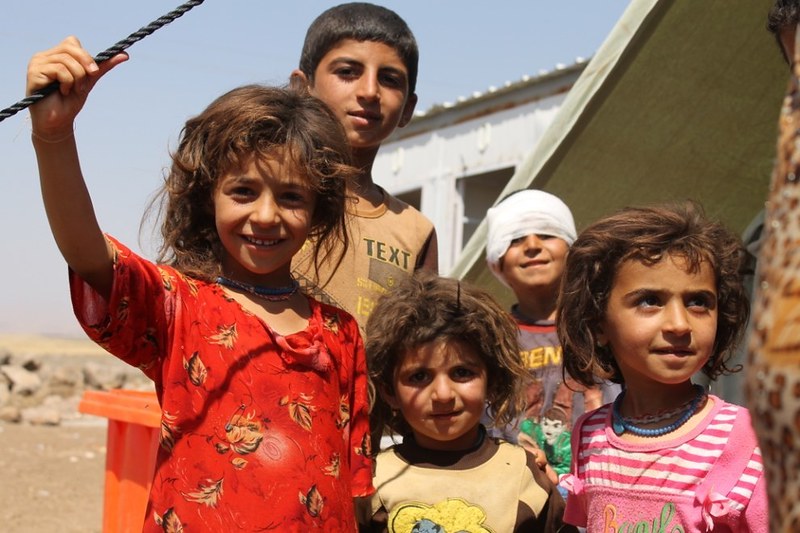Foreign Aid to Iraq: A Keystone in Rebuilding and Development
 Iraq has a long and rich history that extends back thousands of years, with significant contributions to mathematics, science and literature. However, in recent decades, conflicts have plagued Iraq, including the Iran–Iraq War, the Gulf War and the Iraq War, which have had a devastating impact on the country’s infrastructure and economy. The cessation of hostilities with the Islamic State group in 2018 marked a transition from immediate crisis response to addressing the protracted humanitarian needs of a nation in reconstruction. The commitment of foreign aid to Iraq has been paramount in supporting the nation’s path toward stability and growth.
Iraq has a long and rich history that extends back thousands of years, with significant contributions to mathematics, science and literature. However, in recent decades, conflicts have plagued Iraq, including the Iran–Iraq War, the Gulf War and the Iraq War, which have had a devastating impact on the country’s infrastructure and economy. The cessation of hostilities with the Islamic State group in 2018 marked a transition from immediate crisis response to addressing the protracted humanitarian needs of a nation in reconstruction. The commitment of foreign aid to Iraq has been paramount in supporting the nation’s path toward stability and growth.
The European Union’s Pivotal Role
Since 2003, the European Union (EU) has played a critical role in humanitarian support in Iraq, with a strong emphasis on legal aid and protection for vulnerable populations. Acknowledging the long-term challenges, in 2023, the EU dedicated €17 million to aid internally displaced individuals, underscoring education, health care and assistance, particularly for those grappling with the aftermath of camp closures. This allocation is part of the EU’s sustained efforts, which have seen contributions such as €5 million, €79 million and €150 million in various years, to bolster Iraq’s recovery process. Collectively, the EU has provided over €547 million since 2014, reaching more than 400,000 Iraqis and emphasizing the importance of civil documentation for ensuring access to fundamental rights and services.
USAID’s Multifaceted Support
The United States, via USAID, has been a consistent ally to Iraq, focusing on community stability and economic prosperity. Since 2014, USAID has provided $3 billion in humanitarian aid to address essential needs such as water access, sanitation and food security. Its programs have supported the rebuilding of communities, particularly those that ISIS ravaged, with a focus on local resilience and sustainable recovery initiatives.
Governance and Economic Development
USAID’s commitment extends to cultivating a democratic, accountable governance system in Iraq. Efforts to enhance the transparency of political processes and service delivery are pivotal in their strategy. USAID strives to incorporate civil society actors into these processes, promoting a more inclusive and equitable society and aligning with the broader objective of Iraq’s stability and prosperity.
Challenges and Prospects
Despite the formidable challenges of governance, economic strain and the impact of the COVID-19 pandemic, foreign aid to Iraq has provided immediate relief and the foundation for the country’s long-term recovery. The collaboration of entities like the EU and USAID signals a concerted effort toward a more secure and affluent Iraq.
A Unified Path Forward
Foreign aid to Iraq, including humanitarian assistance and development support, has been instrumental in confronting the country’s complex challenges. The collaborative efforts of the EU, USAID and other international partners underscore a shared commitment to Iraq’s enduring recovery and resilience. As Iraq advances on its quest for peace and prosperity, unwavering support from the international community is imperative. The persistence of this support not only fulfills immediate needs but also assists in laying the groundwork for a stable, prosperous Iraq, contributing significantly to global peace and stability.
– Hana Alkhodairi
Photo: Flickr
